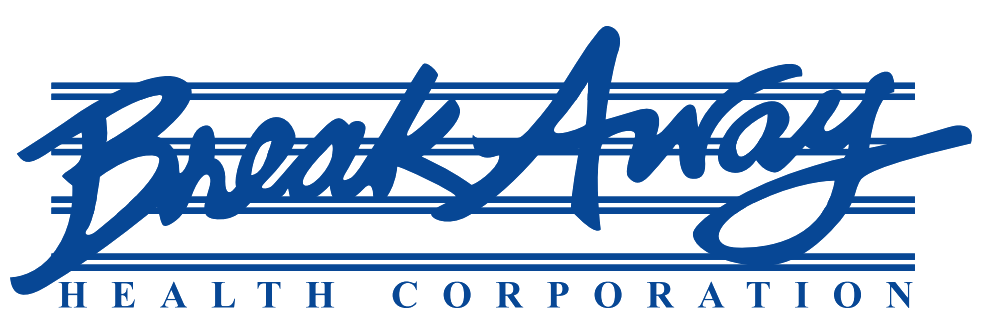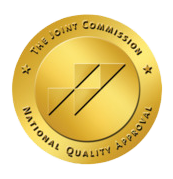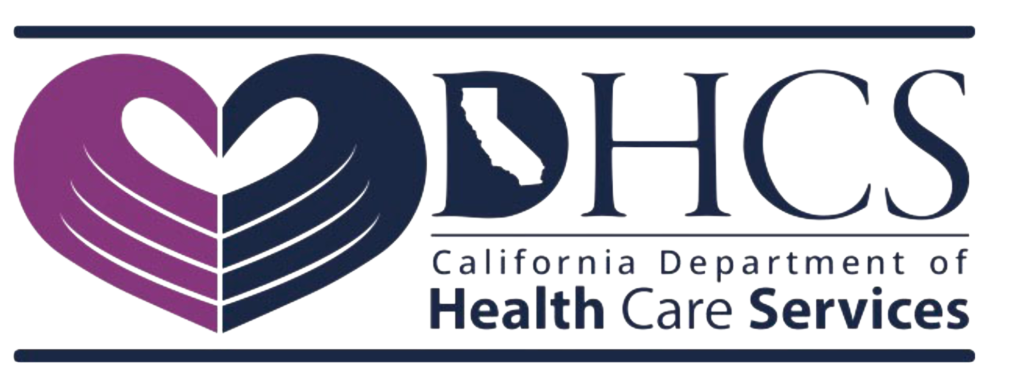Millions of Americans face challenges related to substance use and mental health. Yet, far too many individuals don’t realize that these two issues often occur simultaneously. You may know someone dealing with anxiety who turns to alcohol or someone who uses drugs to escape depression. These cases reflect a widespread issue. This overlapping condition, known as dual diagnosis, is more common than many realize. According to research, a significant number of individuals dealing with substance abuse are also struggling with mental disorders, and vice versa.
With the right kind of support, it’s possible to recover from both mental health struggles and addiction. That’s where Breakaway Health comes in. Our experienced team provides targeted care for those dealing with dual diagnosis in Costa Mesa, CA. You don’t have to choose between treating addiction or mental health because we treat both.
What Is Dual Diagnosis?
Dual diagnosis refers to the condition in which a person experiences both a substance use disorder and a mental health disorder at the same time. This could include combinations like alcohol addiction and depression, or opioid use alongside anxiety disorders.
Dual diagnosis is not rare. In fact, many experts estimate that nearly 50% of individuals with a mental disorder will also face a substance use issue at some point in their lives.
This co-existence can make treatment more complicated, as both conditions often influence and worsen each other. For instance:
- Depression can lead someone to use drugs to feel temporary relief.
- Drug abuse can intensify or even trigger mental disorders like psychosis or anxiety.
- When left untreated, both conditions may spiral further out of control.
- Anxiety may push individuals toward alcohol as a form of self-soothing.
- People with untreated PTSD are more likely to develop substance dependence.
- Mood swings can become more extreme when substance use disrupts emotional regulation.
- Withdrawal symptoms can mimic or worsen mental health issues, making diagnosis harder.
Dual diagnosis recognition is the first step towards healing because it opens the way for both the suffering individual and healers to tackle the basic cause of abuse. It is a move from focus on treatment of solitary signs and symptoms to an assault on the entire model of one’s mental as well as behavioral status. When dual diagnosis has been detected, proper treatment modalities become possible to apply, one that covers psychological as well as physiological complications.
What Causes Substance Use and Co-Occurring Mental Disorders?
Several factors can contribute to why someone might experience both mental health issues and substance use problems. While every case is unique, common contributing elements include:
Biological Influences
Genetics can prove to be an active influence behind the development of mental disorder as well as addiction. Research has proved that certain genes which have a potential to impact one’s reaction towards stress, brain control of mood, as well as metabolisms of things like drugs or alcohol. Individuals with depression, anxiety, bipolar illness, or drug dependence in their histories are at a higher risk to inherit a tendency to develop both disorders. Genetically determined impulses or risk-taking behavior also increases the likelihood for co-occurring disorder when coupled with environmental factors.
Environmental Stressors
Exposure to trauma, childhood abuse, neglect, or high levels of stress can all increase the likelihood of developing co-occurring disorders such as:
- Traumatic events like violence, natural disasters, or the sudden loss of a loved one can alter brain function and emotional regulation.
- Children who experience neglect or abuse may grow up with emotional and psychological wounds that affect their coping mechanisms.
- Stressful environments may lack supportive family or community networks, leaving individuals more vulnerable to mental health issues.
Over time, these factors can contribute to entrenched patterns of addiction and mental health struggles, particularly if early intervention is not available.
Chemical Brain Imbalances
Mental disorders are often marked by abnormal brain chemistry that can impact mood control, stress response, and thinking. Adding illegal drugs such as alcohol, stimulants, or opioids to the mix makes it even more complicated by interacting with the underlying imbalances—initially bringing relief or a sense of euphoria. These drugs disrupt normal neurotransmitter function and, with repeated use, lead to physical and psychological dependence. With repeated use of the substance, not only is the root mental health problem not addressed but also symptoms like anxiety, paranoia, or depressive moods are intensified. The brain ultimately loses its ability to function normally without the substance, and recovery becomes more difficult and the mental condition unstable.
Self-Medication Patterns
People also utilize alcohol or drugs as a method of hiding evidence of mental illness, like panic attacks, sleeplessness, or mood swings. For instance, a nervous person will use alcohol to relax during social interactions, or a person who is depressed will use stimulants for the short-lived energy and motivation they receive from them. This method, however, gives false relaxation. Over time, the brain will learn to rely on the substance to function, and the underlying mental illness will worsen and be harder to treat. Use of the substance can also interfere with the efficacy of psychiatric medication or therapy, creating a cycle that feeds both disorders.
With such understanding of their causes, physicians can conceptualize more effective treatment strategies that address both diseases simultaneously. By way of such understanding, it is possible to create holistic interventions to attend to a patient’s emotional, behavioral, and physical states, with the aim of enhancing long-term recovery.
What Is the Relationship Between Substance Use and Co-Occurring Mental Disorders?
The connection between substance use and co-occurring mental disorders is deeply intertwined. Each condition affects the other in ways that can make recovery more difficult if not addressed together. Here’s how they interact:
Mutual Influence
Mental health disorders such as depression, anxiety, or trauma disorder will compel the person to drug abuse as an escape route or coping strategy. For instance, a person enduring terrible anxiety will drink liquor as a way to calm his/her nerves, and a person grappling with intrusive thoughts will turn to drugs in their effort at mental numbing from the psychological ache. The coping mechanism, though short-term successful, leads to an unhealthy cycle. The more frequently drugs are used, the greater tolerance is built, and hence more is required to achieve the same effects. In contrast, drug and alcohol use creates changes in brain chemistry that enhance emotional suffering, increase paranoia, exacerbate mood instability, and can lead to suicidal thoughts. The initial mental illness worsens with time, while the drug or alcohol addiction becomes more stabilized.
Disrupted Treatment
When only one condition is treated, the other untreated one is prone to cause relapse. For example, a person quits using drugs but reverts back due to untreated depression, which re-emerges as hopelessness, irritability, or numbness. In the same way, a person going for therapy for anxiety but still drinks too much may become aware that things are not being improved because alcohol can reverse the gains made in therapy. If one issue isn’t resolved, it can send everything into a state of imbalance that makes it extremely hard to stay on track with recovery. If a person gets sober but their depression or anxiety isn’t treated, that emotional pain can seep back in and relapse is likely to occur. That’s why treating substance abuse and mental health problems at the same time is so important. Treating both gives people the best chance to get better and stay healthy in the long run.
Masking Symptoms
Substances often mask mental health symptoms, and it becomes harder for healthcare providers to understand the true cause of a person’s emotional or psychological distress. For example, substance use could mask depression or anxiety symptoms, and healthcare providers may not make a diagnosis or misread symptoms. This overlap could lead to delays in accessing proper care, inconsistency in treatment, and making individuals feel misunderstood or unsupported to some extent. Misdiagnosis not only puts progress on ice but can also lead to treatments that fail to treat what a person is really going through.
At Breakaway Health, we look at the entire picture more intently; evaluating patterns of drug use as well as emotional and behavioral symptoms to accurately diagnose co-occurring disorders. By doing so, we lay the groundwork for more targeted and long-lasting recovery plans that treat both sobriety and mental health.
What Percent of Substance Abusers Have Co-Occurring Mental Disorders?
Research suggests that around 50% of individuals with a substance use disorder also have a mental health condition. This figure highlights how common dual diagnosis truly is—and why integrated care is essential.
- About 1 in 4 adults with a serious mental health issue also struggles with addiction.
- In treatment facilities, up to 60% of clients are managing both mental illness and substance abuse.
- Adolescents with behavioral disorders are significantly more likely to engage in substance use.
- Veterans often face co-occurring PTSD and addiction, highlighting the need for targeted care.
- Individuals with schizophrenia are more prone to nicotine and alcohol use disorders.
- Women with depression are at increased risk of developing alcohol use disorders.
- Co-occurring conditions often go undiagnosed due to overlapping symptoms and stigma.
How Is Dual Diagnosis Treated at Breakaway Health?
Treating both conditions at once is crucial. At Breakaway Health in Costa Mesa, CA, we focus on creating personalized strategies that address both substance use and mental health disorders.
Our treatment options often include:
Therapeutic Approaches
At Breakaway Health, we use a variety of evidence-based therapies to support individuals with dual diagnosis. These include:
- Cognitive Behavioral Therapy (CBT): Helps people identify and challenge harmful thought patterns that contribute to both addiction and emotional distress.
- Dialectical Behavior Therapy (DBT): Focuses on teaching skills like emotional regulation, distress tolerance, and healthy communication—especially useful for those with intense emotions or trauma.
- Trauma-Informed Care: A compassionate approach that acknowledges past trauma and ensures clients feel safe, respected, and empowered throughout treatment.
Each of these therapies offers a unique set of tools to help individuals process their emotions, cope in healthier ways, and reduce the risk of relapse.
Medication Management
When appropriate, medications can play a vital role in recovery by targeting both substance use and mental health symptoms. These may include:
- Antidepressants to help regulate mood and alleviate symptoms of depression or anxiety
- Anti-anxiety medications for those struggling with persistent worry, panic, or trauma-related symptoms
- Mood stabilizers for individuals with bipolar disorder or intense emotional fluctuations
- Medication-assisted treatments (MAT) like buprenorphine or methadone, which help reduce cravings and withdrawal symptoms in opioid addiction
- Anti-craving medications such as naltrexone or acamprosate for alcohol or opioid use disorders
Medications are most effective when combined with therapy and behavioral interventions. They support emotional balance and allow individuals to fully engage in counseling, group work, and other healing activities.
Group and Individual Counseling
Talking through issues with professionals and peers can make a meaningful difference in recovery. These conversations offer:
- A safe space to express emotions without fear of judgment
- New perspectives that help individuals better understand their thoughts and behaviors
- Supportive feedback that encourages accountability and growth
- Connection with others who are facing similar challenges, reducing feelings of isolation
These discussions aren’t just helpful, they’re essential for building trust, gaining clarity, and fostering emotional resilience throughout the healing process.
Aftercare and Relapse Prevention
Long-term support is about helping people build a life they feel good about after treatment. At Breakaway Health, we make sure clients leave with more than just tools for coping. They gain access to meaningful, lasting resources, including:
- Peer recovery groups that offer connection, accountability, and shared experiences
- Outpatient check-ins to help individuals stay on track and adjust treatment as needed
- Local mental health services that offer ongoing support when challenges arise
These have a huge impact when someone transitions back into daily life. They help reduce feelings of isolation and offer steady encouragement during tough times.
This kind of ongoing care not only supports immediate recovery but it gives people the confidence and support they need to grow, heal, and stay well over time.
Breakaway Health Is Here for You
Co-occurring disorders are more common than many people think—but hope and healing are possible. Our compassionate professionals offer focused care designed to support dual diagnosis recovery.
For expert support in dealing with substance use and mental health, call Breakaway Health today! Whether you’re seeking answers for yourself or someone you care about, our team is here to support your next step.
FAQs
1. What is dual diagnosis?
Dual diagnosis is when someone experiences both a mental health disorder and a substance use disorder at the same time.
2. What causes substance use and co-occurring mental disorders?
These issues can result from a mix of genetic, environmental, and psychological factors, including trauma, brain chemistry, and self-medication.
3. What percent of substance abusers have co-occurring mental disorders?
Research suggests that around 50% of individuals with a substance use disorder also have a mental health disorder.
4. What is the relationship between substance use and co-occurring mental disorders?
The two conditions often influence each other. Substance use can worsen mental disorders, and mental health struggles can lead to substance abuse.
5. How does Breakaway Health treat co-occurring disorders?
We use a combination of therapy, medication support, and aftercare planning to address both addiction and mental health in a single, cohesive plan.







